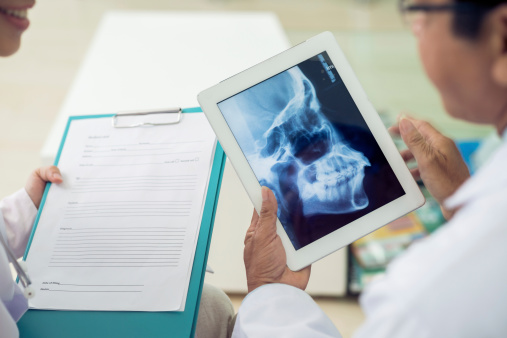Bone Resorption At Surf City Oral and Maxillofacial Surgery, we try to assist those with bone resorption. If you take Our surgeons's advice seriously and follow their plan, it can help you in the long run. At Surf City Oral and Maxillofacial Surgery, we try to assist those with bone resorption. If you take Our surgeons's advice seriously and follow their plan, it can help you in the long run. Your bones are continually changing as you age, breaking down and replacing old bone and forming new bone. The body must go through this essential part of life naturally. However, a reduction in bone mass and an increase in fracture and breaking risk might result from resorption occurring faster than it can be replaced. The jawbone is the oral region most vulnerable to this condition. Bone metabolism entails a never-ending dance between bone-forming cells called osteoclasts and bone-resorbing cells called osteoblasts, as well as many hormones and regulatory forces. To what extent bone metabolism is kept in check depends on the relative abundance of these signaling molecules. The danger of developing chronic and debilitating diseases like osteoporosis increases when the delicate balance between bone resorption and bone formation is disrupted. Sclerostin - A New Player in the Bone Building and Breaking CycleA protein called sclerostin is produced from the SOST gene. It plays a critical role in the bone formation and resorption cycle by suppressing osteoblast activity through antagonism of the signaling pathway. Chronic kidney disease has been linked to increased sclerostin levels, suggesting that this protein may be of interest in the context of renal insufficiency. Causes of Bone ResorptionHypovitaminosis D, hyperparathyroidism, and age-related hormonal decline are potential contributors to bone resorption. Osteoporosis and rickets are two disorders that cause bones to become weak and brittle. Many suffer from abnormally high bone resorption rates and low bone production rates. Jawbone LossThe alveolar bone, the region of the jaw supporting your teeth and the connective tissue that helps hold your teeth in place, is constantly stimulated by the presence of tooth roots in the oral cavity. If a missing tooth is not replaced, atrophy of the jawbone around the empty socket will occur. The adjoining teeth will shift to fill the gap left by the extracted tooth, which can be a sign of jawbone loss. Jaw InjuryAny kind of jaw trauma or injury can cause bone resorption, sometimes months or years after the initial injury. When teeth are severely decayed or knocked out of place by trauma to the jaw, the jawbone might reduce in size to accommodate the missing tooth. Because children's teeth and bones are still developing, they may be more susceptible to bone resorption after an injury. Root Canal Therapy for Gum DiseasePatients suffering from gum disease often have bone resorption in the mouth. The ligaments that assist to keep teeth in place are affected by gum disease. When left untreated, gum disease can destroy the alveolar bone and connective tissue that hold teeth in place, leading to tooth loss and infection in the spaces between teeth. Tooth loss can occur if gum disease is allowed to progress unchecked. Contact Surf City Oral and Maxillofacial Surgery and get it treated if such a situation arises with you. Medical Malady of Bone ResorptionPaget's disease of bone, osteoporosis, and bone alterations due to cancer are prevalent clinical conditions in which bone resorption is elevated. Some rare clinical conditions, such as pycnodysostosis and osteopetrosis caused by a cathepsin K deficiency, include impaired bone resorption. Throughout life, bone maintains a metabolic rate of about 1%. In the mouth, bone loss, especially of the jawbone, can have serious consequences for oral and dental health. Loss of oral bone can cause problems such as shifting teeth, a different facial profile, and even jaw pain. Call Surf City Oral and Maxillofacial Surgery at 657-384-2787 to schedule an appointment and initiate the start of a healthy mouth and routine. |
|
|